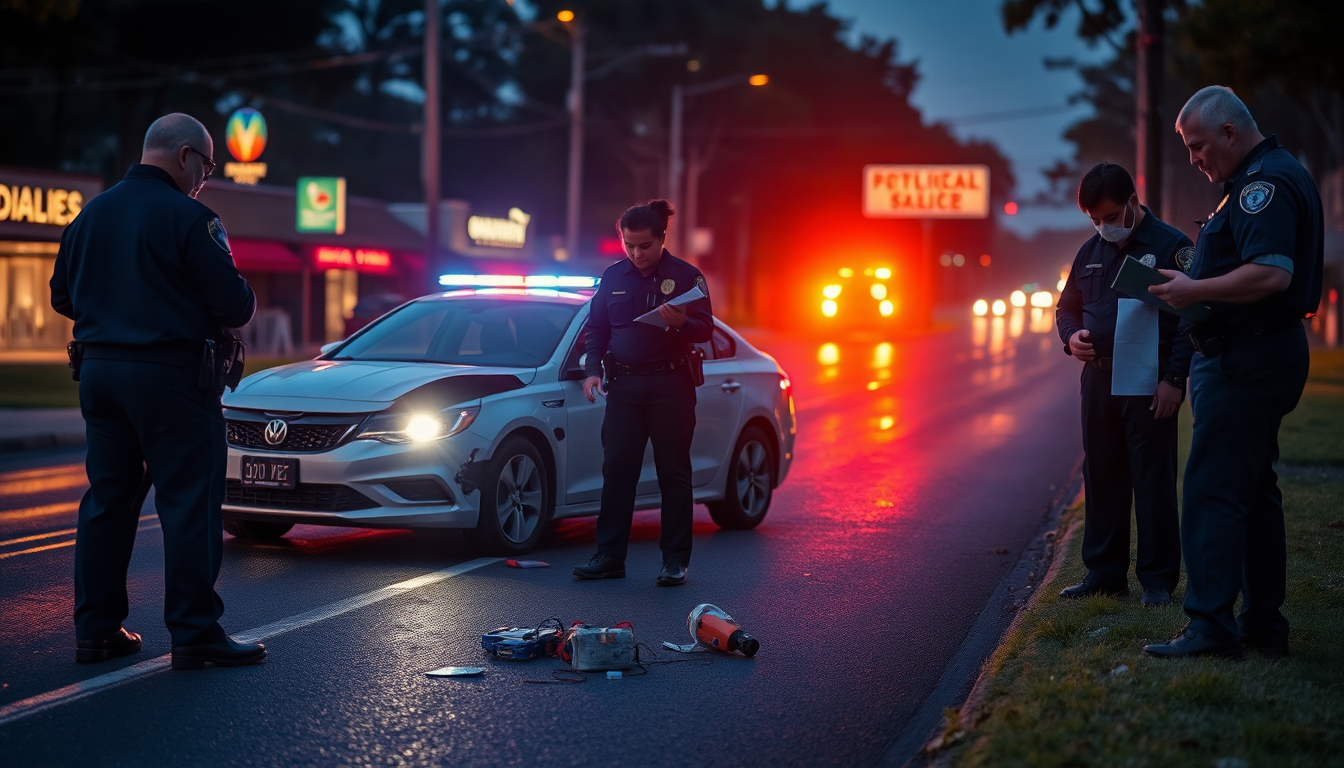Table of Contents
In a troubling incident in Polk County, Florida, a 34-year-old man from Nicaragua, Roberto Sandobal-Lopez, was arrested after a drunken hit-and-run crash. This alarming event not only raises serious questions about public safety but also highlights how immigration status can complicate criminal charges. Sheriff Grady Judd reported that Sandobal-Lopez was taken into custody following a chaotic Saturday evening.
What Happened That Evening?
The incident took place around 7 p.m. when Sandobal-Lopez crashed his white Honda into a residential fence in Winter Haven. Witnesses quickly alerted the Polk County Sheriff’s Office, allowing deputies to respond without delay. When they arrived, they found Sandobal-Lopez walking away from the scene, and it was clear he was under the influence. His eyes were described as “watery” and “bloodshot,” and there was a strong smell of alcohol surrounding him.
When deputies asked about his drinking, Sandobal-Lopez admitted to downing six bottles of Modelo beer just hours before the crash. A breath test confirmed their suspicions, showing his blood alcohol content (BAC) at 0.13 and 0.124—well above the legal limit. Field sobriety tests further indicated that he was impaired, solidifying the case against him.
Facing Legal Consequences
After his arrest, Sandobal-Lopez was booked into Polk County Jail, facing several serious charges: driving under the influence (DUI) with property damage, leaving the scene of an accident, and driving without a valid license. However, his immigration status complicated matters. In Florida, individuals in the U.S. illegally face harsher penalties for their crimes. This meant that his DUI with property damage charge was upgraded to a third-degree felony, while the other charges were classified as first-degree misdemeanors.
Sheriff Judd didn’t hold back, calling Sandobal-Lopez a coward for fleeing the scene. He emphasized that the only damage was to a fence, which could have been much worse. The sheriff also pointed out that illegal immigration is a serious offense in Florida, and it can significantly impact the legal outcomes of other crimes.
What Does This Mean for the Community?
This incident is a striking reminder of the complex relationships between criminal behavior, public safety, and immigration laws. Sheriff Judd’s comments reflect a broader concern about how Florida law treats individuals based on their immigration status, particularly for serious offenses like DUI. As law enforcement continues to tackle public safety issues, the case of Roberto Sandobal-Lopez reveals the ongoing challenges communities face in balancing legal enforcement with immigration complexities.
Moreover, this situation sparks a conversation about the importance of responsible behavior—both in obeying the law and understanding the potential consequences of one’s actions. The community is left to reflect on the implications of such incidents and the need for ongoing vigilance in promoting safety and accountability on the roads. How can we all contribute to a safer environment?


